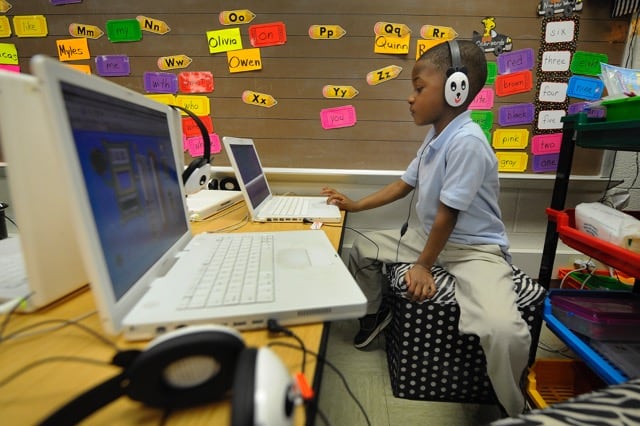The Indianapolis Public Schools board unanimously voted Thursday to begin school entirely virtually and delay the return to classrooms at least until October.
District officials have been planning for weeks for students to return to classrooms in person. But as the date to reopen approached and the coronavirus pandemic worsened across Indiana, many teachers and parents became increasingly anxious. This week, IPS leaders concluded that they did not see a way to reopen classrooms safely when the school year begins Aug. 17.
“These are not easy decisions to make, but our children’s lives matter,” said school board member Elizabeth Gore.
As IPS officials presented the plan to the board, they spoke to how they would attempt to mitigate the problems with remote learning, from improving instruction to offering supervised sites where students without stable housing can go during the day. But they also acknowledged that the decision would be a burden on many families.
The abrupt shift to remote instruction in March was a struggle for the district, where many students lacked access to technology and support at home, and many educators were unprepared for a fundamentally different approach to teaching.
Officials said this time around it would be better. Having devices for every student will allow teachers to connect with them more regularly, including through more live lessons, Superintendent Aleesia Johnson said. Because they will have consistent, live lessons, students will have more structured days.
“I couldn’t sleep last night because I know what this means for so many of our families and what they will be up against and challenged with over the next several months,” Johnson said, “but I told our team and our principals, we’re going to need to work and teach like we have never done before because that is what our children and our families deserve.”
The administration also provided more details on the in-person resources that will be available for some children. The district will create learning “hubs” in IPS buildings where students who are homeless or housing insecure can go while they do remote learning. Students with disabilities who receive services such as speech therapy may choose to have those services in person.
Finally, the district is working with community partners to create a “student support network” where other students who need supervision and structure can go to do virtual work.
“There is no simple fix for children who will be left at home if parents must work,” said school board member Diane Arnold. “It is our most vulnerable students who need this in-person care and academic support. This component is the most challenging aspect of the proposed plan.”






